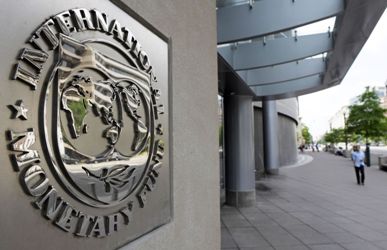IMF calls on Sudan to adopt tax reforms, projects external debt to hit 87.6% of GDP in 2013
October 5, 2013 (WASHINGTON) – The International Monetary Fund (IMF) offered a grim assessment of Sudan’s economic situation now and in the near future saying that a number of vital indicators continue to show the need for Khartoum to carry on with deeper reforms.

“Economic conditions remained weak in the first half of 2013 despite some signs of improvement,” the IMF said.
The global financial institution listed a number of positives including a decline in inflation rate by end of August, a decline in deficit as percentage of GDP which exceeded the target and a slowdown in monetary aggregates.
But the IMF said that many challenges lie ahead for Sudan.
“The outlook for 2013 and the medium term are unfavourable, absent a new package of corrective measures. Non-oil real GDP growth is projected to slow further to 2.3 percent in 2013, and to remain below potential at about 3 percent over the medium term. Inflation would decelerate somewhat, but would remain in double-digit levels, reflecting the monetization of the budget deficit, as well as the continued depreciation of the Sudanese pound”, the IMF said.
“While the overall budget deficit is projected to narrow over the next two years, mainly reflecting the impact of oil transit fees and the transitional financial arrangement with South Sudan, it is projected to widen again in subsequent years. The outlook is subject to significant risks—the main risk relates to the protracted economic and political transition in the period leading up to the 2015 presidential election and unsettled regional civil conflicts that could result in weaker growth and higher inflation”, it added.
Sudan has been struggling with what was described as an economic shock following the loss of the oil-rich south in July 2011. Oil revenues constituted the majority of Sudan’s exports, national income and source of hard currency.
The Sudanese pound has lost more than half of its value pushing inflation rates to record levels given that the East African nation imports most of its food.
Sudan Forex reserves held by the central bank cover only two months of imports, according to IMF figures released yesterday. Sudanese officials in the past have said they have enough holdings for five months of imports.
A number of factors including US sanctions, hefty debt burden, cool relations with the west and reluctance of rich Arab nations to assist have prevented Sudan from receiving financial assistance similar to other countries in the region such as Egypt, Yemen and Tunisia.
Furthermore, attempts by Sudan to secure debt relief has largely been unsuccessful.
Fearing an economic collapse, as Sudanese officials termed it, Khartoum cut fuel subsidies late last month which almost doubled prices of gasoline and diesel thus triggering some of the worst protests Sudan has seen in years.
The IMF urged Sudan to strengthen current economic policies with urgent focus on addressing fiscal imbalances and tax reforms.
“While most of the adjustment effort will need to focus on reducing expenditures by reducing transfers to states, and gradually phasing out subsidies, tax revenues will also need to be increased, in part through streamlining tax exemptions and rationalizing tax incentives.”
“Monetary policy should be geared towards combating inflation; a key requirement in this regard is formulation a clear mandate for the Central Bank to facilitate its operational independence. Immediate unification of the exchange rates and greater exchange rate flexibility is crucial to facilitate the required external adjustment and to safeguard and rebuild official exchange reserves”, the statement said.
The IMF also urged Sudan to work with South Sudan on the issue of debt that existed under the per-secession Sudan but currently inherited by Khartoum.
“In light of Sudan’s large stock of overdue external debt obligations, the government should work closely with South Sudan, as part of the recently signed Comprehensive Agreement, on reaching out to creditors to elicit their support for comprehensive debt relief, given the approaching deadline of the “zero option” for debt apportionment”.
North and South Sudan agreed to work jointly on seeking debt relief from international creditors. If these efforts are unsuccessful the ex-foes will sit down again to decide on how to split the debt.
According to IMF projections, Sudan’s external debt as percentage of GDP increased to 87.6% from 82.2% in 2012.
(ST)
